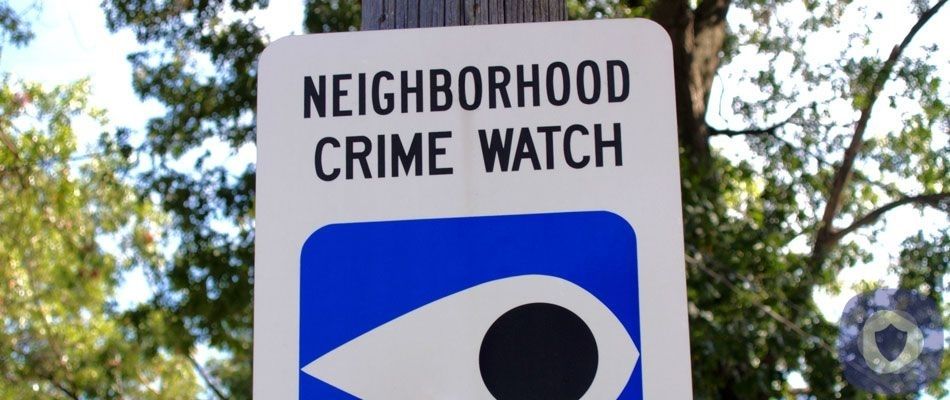When it comes to crime, it can feel like a losing battle, as criminals take what’s not theirs and strike fear in the hearts of a community’s citizens despite the best efforts of law enforcement officials. No matter how safe your neighborhood may seem, there are no areas that are immune from it. That’s why across the country, citizens have banded together to form neighborhood crime watch programs to help fight back and make their communities safer.
How does a neighborhood watch program work?
While the formal National Neighborhood Watch (NNW) organization was launched in 1972 by the National Sheriff’s Association, the concept of watches is one that dates back to our nation’s earliest colonial days when citizens took turns taking on night patrol duties. There are many different versions of neighborhood watch programs today, but at their core, they are all about banding together with your neighbors and working with law enforcement officials to help keep your streets safe. The activities of such groups vary, but may include regular community meetings, organized neighborhood patrols, distribution of information and neighborhood cleanups.
Neighborhood watch groups aren’t about doing police work and are strongly dissuaded from carrying weapons or any kind of vigilante justice. Rather, their mission should be to serve as extra “eyes and ears” for police and inform them when something seems amiss.
How to start your own neighborhood watch program
Starting a neighborhood watch program isn’t complicated and doesn’t have to be time-consuming. It just takes someone willing to take the lead and get things going. Here’s how:
Determine if there are any existing groups in your area
Ask your neighbors, inquire in local online forums and call your local police department to see if there are any nearby neighborhood watch groups with which you could join forces. There’s no sense in reinventing the wheel if you can expand on or join something that’s already in place and working well.
Recruit members
Talk to your neighbors and see who is on board to join a neighborhood watch group. Many watch programs have block captains, so make note of those who may be willing to serve as one.
Connect with local law enforcement authorities
Working with local law enforcement officials is key to any successful neighborhood watch program. Once you have a group of citizens on board, request a meeting with law enforcement officials to share concerns and see how you might best work together.
Create a plan
Come up with a concrete plan that determines the actions you’ll take as a group. Will you organize nightly patrols? Will you meet regularly or take on other projects? Lay it all out in clear steps so everyone knows what to expect. Your watch group may also want to consider registering with the NNW for access to a variety of resources and publications to help develop and support your watch group.
Communicate regularly
Continued communication and sharing of information is vital to an effective neighborhood watch program. Consider holding periodic in-person meetings as well as establishing an efficient means of communication, perhaps through group texts or a Facebook group.
Do neighborhood watch programs deter crime?
So, that all sounds great in theory, but do neighborhood watch programs actually deter crime? While studies have produced mixed results over the years, the general consensus is that neighborhood watch programs do, in fact, help prevent crime. One study found that areas with neighborhood watch programs had a 16 percent reduction in crime, and a report by the U.S. Department of Justice concludes, “Across all eligible studies combined, Neighborhood Watch was associated with a reduction in crime.”
Beyond serving as deterrents to crime, neighborhood watch programs also help foster a sense of community and help neighbors get to know one another. They can also bolster the relationship between law enforcement officials and citizens.
Other ways you can help prevent crime in your neighborhood
Stay informed
Many local police departments have Facebook pages and other social media accounts established to help keep citizens informed of crime trends in the area and safety initiatives. Also, apps like NextDoor, SpotCrime and Neighbors by Ring offer a great way to keep a pulse on activity in your community.
Communicate
Even if you don’t have a formal watch group, regularly talking with your neighbors about what’s going on can help. Letting them know when you’re going on vacation and keeping an extra eye out for them when they are away can go a long way to help. Also, to take a line from Homeland Security, “if you see something, say something”… both to local police and your neighbors
Install preventative measures
Outdoor security cameras can help you keep an eye on what’s happening near your property and help authorities identify criminals when crimes occur.
The bottom line on neighborhood watch programs
In an ideal world, there wouldn’t be a need for neighborhood watch programs, but in our world, they’re one more tool that can help protect us from criminals. If your neighborhood doesn’t already have a watch program, consider starting one.
This article has been reviewed and approved by Officer Banta.

Officer Banta is the official SecurityNerd home security and safety expert. A member of the Biloxi Police Department for over 24 years, Officer Banta reviews all articles before lending his stamp of approval. Click here for more information on Officer Banta and the rest of our team.

